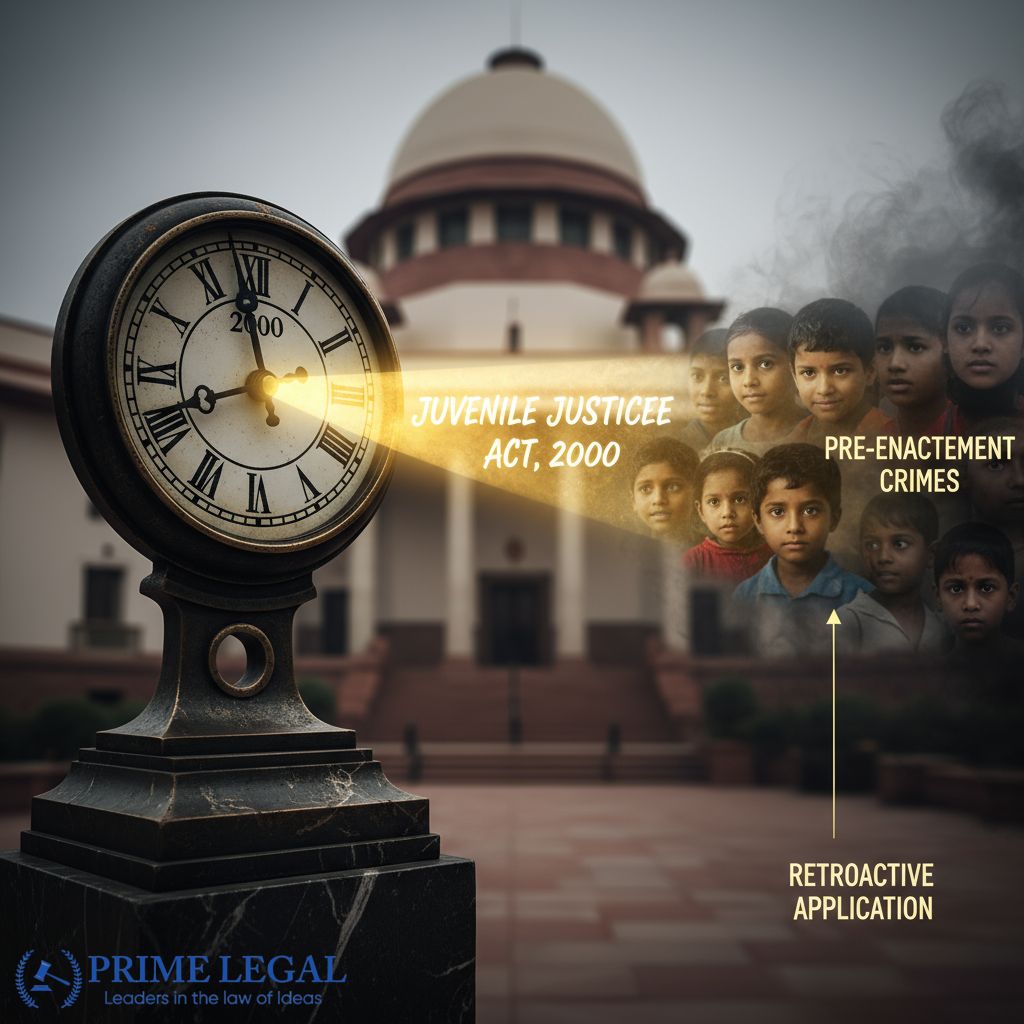Introduction
The Supreme Court held that the Juvenile Justice (Care and Protection of Children) Act, 2000 (JJ Act, 2000), can be applied to an offence that took place when the Children’s Act, 1960, was applicable. The concerned position was outlined in the case of Hansraj v. State of Uttar Pradesh. [Hansraj v. State of Uttar Pradesh, 2025 INSC 1211]
Background
The petitioner, Hansraj, was born on 10 June 1969. He, along with five others, was accused of assaulting a person with knives and lathis that led to the victim’s death. This incident occurred on 2 November 1981, when he was 12 years and 5 months old. This was an undisputed fact. The Sessions Court recognised that he was a juvenile under the Children’s Act of 1960 and directed him to stay in a children’s home. The petitioner appealed in the High Court, which acquitted all the accused. However, the Supreme Court restored the conviction. Due to this, Hansraj absconded and was arrested in May 2022. He spent around three years and ten months in custody.
The main issue before the Supreme Court was whether the petitioner could claim the benefit of the JJ Act, 2000, as he was a juvenile on the date of the offence’s commission and whether his continued detention was illegal.
Key Points
On the maximum period of detention – Regarding the maximum duration of detention, Section 15(1)(g) of the Act stipulates that a minor may be in detention for a maximum of three years; therefore, anything after that time is prohibited. Due to this, Article 21 of the Constitution is also violated.
On raising a claim of juvenility- The Court pointed out that Section 7-A of the JJ Act, 2000, permits bringing up a claim of juvenility at any point, even after a case has been decided. It cited the case of Pratap Singh v. State of Jharkhand, 2005, which upheld the right to bring up juvenile claims at any time. [Pratap Singh v. State of Jharkhand & Anr (2005) 3 SCC 551]
On the scope and objective of the JJ Act, 2000- The Court highlighted that juvenile justice laws are reformative. The legislature intends to prioritise rehabilitation over the punishment of child offenders. It referred to the case of Lakhan Lal v. State of Bihar, 2011, to observe that persons who were below 18 years on the date of the offence must be treated as juveniles, irrespective of the date of trial or conviction. Following this, the court held that even though the offence took place before the JJ Act, 2000, the petitioner was entitled to its benefits. [Lakhan Lal v. State of Bihar, 2011 (2) SCC 251]
On procedural lapse- The Court pointed out that Section 24 of the Children’s Act, 1960 bars joint trials of children and adults. In this case, Section 24 was breached.
Recent developments
This case is not a mere case of acquittal. It reaffirms commitment to child rights, ensuring that the benefit of juvenile justice is prioritised. This judgment will probably give relief to many who have been illegally detained on the ground that the JJ Act, 2000, is inapplicable as the offence took place before its enactment. This also upholds the rehabilitative nature of the juvenile justice laws.
Conclusion
As the petitioner had been in custody for more than three years, his custody was held to be unconstitutional and thus violative of Article 21- his right to life and liberty. The Supreme Court noted that he was a juvenile at the time of the offence and had already undergone more than the permissible period of detention under the JJ Act, 2000. Accordingly, the Court ordered his immediate release.
“PRIME LEGAL is a full-service law firm that has won a National Award and has more than 20 years of experience in an array of sectors and practice areas. Prime legal falls into the category of best law firm, best lawyer, best family lawyer, best divorce lawyer, best divorce law firm, best criminal lawyer, best criminal law firm, best consumer lawyer, best civil lawyer.”
WRITTEN BY: FARZEEN ZAMAN


